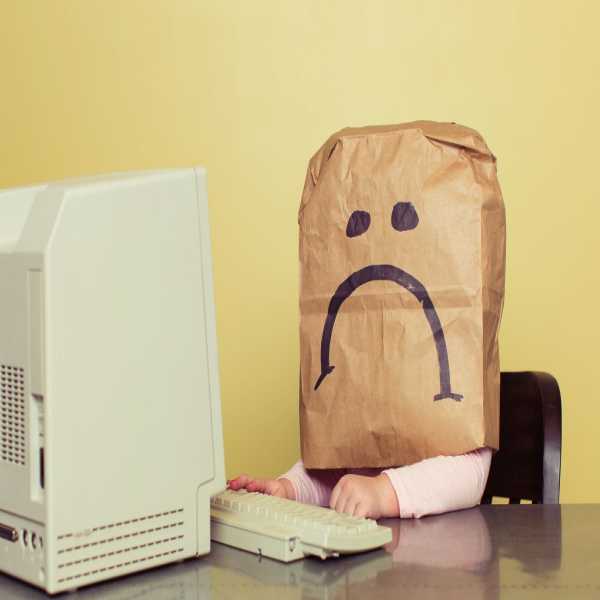He blames the collapse of moral education. But what about capitalism?

This story is part of a group of stories called

Finding the best ways to do good.
One of the things you hear often these days is that America is becoming a more polarized country. As far as I can tell, almost no one quibbles with this claim.
A recent essay in the Atlantic by columnist and author David Brooks makes a related but slightly different argument, which is that America is also becoming meaner. It’s an interesting assertion, but is it really true? And if it is true, what would the evidence look like?
The story Brooks tells is mostly about the collapse of moral education in America and how that has produced less civil and compassionate citizens. What you don’t find in that story is anything about the evolution of capitalism and its gradual erosion of public life. That seemed like an important oversight.
So I invited Brooks onto The Gray Area to talk about what I think he gets right and what I thought was missing from his account. Below is an excerpt of our conversation, edited for length and clarity. As always, there’s much more in the full podcast, so listen and follow The Gray Area on Apple Podcasts, Google Podcasts, Spotify, Stitcher, or wherever you find podcasts. New episodes drop every Monday.
Sean Illing
Before we dive into it, can you lay out the basic argument you wanted to make in this piece?
David Brooks
It starts with two questions. The first is, why are we so sad? And everybody knows the statistics on depression and mental health problems and suicide. But there’s a whole range of statistics saying we’re also in the middle of some relational crisis. Fifty-four percent of Americans say, “No one knows me well.” The number of people who say they have no close friends has quadrupled. A third of Americans are not in a romantic relationship. We spend a lot less time with our friends than we used to. If you ask high school seniors, are you persistently hopeless and despondent, 45 percent now say yes. That’s sadness, and all that sadness makes us mean.
My second question is, why are we so mean? I was in a restaurant a couple months ago, and the owner told me that he has to kick somebody out of the restaurant once a week for abusive behavior. That never used to happen. I have a friend who’s a nurse at a hospital, and she says their main task is finding nurses because people want to leave the profession because the patients have become so abusive. In the past, something like two-thirds of Americans gave to charity; now it’s less than half. So there’s sadness and meanness everywhere.
A lot of people have had different stories to tell about how this came to be. One of them is the social media story. It’s driving us all crazy. Another is the sociology story: We’re not involved in civic groups, we’re bowling alone. Another is the inequality story: We’re so economically distant from each other, we are not good at knowing each other. But the story I tell is a moral story. It’s the most direct story. We don’t treat each other well because we haven’t taught young people for several generations how to be considerate to each other in the small circumstances of life, how to sit with somebody who’s suffering from depression, how to disagree well.
I focus on moral formation, that we haven’t morally formed each other in ways to make us kind to each other and in ways that make us see each other. When I say moral formation, it sounds super pompous and pretentious, but I mean it in three simple ways. Moral formation is helping us find a way to restrain our natural selfishness. The second thing is moral formation is helping us find a goal in life, an ideal to pursue that gives us meaning and purpose. Then the third part of moral formation is giving us the skills, social skills, to know how to end a conversation with grace, know how to have a hard conversation across difference. So teaching those basic, elemental social skills that help us be decent to one another.
Sean Illing
Some of those statistics are pretty startling. I don’t even know how it’s possible to get to a place where half the country says no one knows them well —
David Brooks
Yeah, and that includes members of your immediate family. And people who have had divorces know that feeling that the person who should know you best has no clue who you are.
For my next book, I interviewed a guy named Dan McAdams, who’s a psychologist at Northwestern. He studies how people tell their life stories. He asks people to come into his lab and gives them a research fee for their time. And then he asks them questions about their life stories. What are your high points? What are your low points? What are your turning points? It takes about four hours, and he says half the people cry when talking about some part of their lives.
But then at the end, he gives them the check for their time, and a lot of them want to give the check back. They say, “I don’t want money for this. This has been the best afternoon of my life. No one has ever asked me about my life story before.” I have certainly found that a lot of people just have never been asked.
I’ll often go to a party and leave and think, “That whole time, nobody asked me a question.” I’ve come to believe that only about 30 percent of humans are questioners. The other people are nice, they tell funny stories, they’re just not curious about other people. I think we’ve drifted into a world where we’re always broadcasting and social media is about how I’m broadcasting, but it’s not about listening, it’s not about taking the time to get to know another human story and making them feel seen, heard, and understood.
Sean Illing
Sadness seems easy enough to measure, but meanness seems a little more complicated. How do you measure it? What are the manifestations of meanness?
David Brooks
Yeah, I try to do that as best I could. You look at murder rates, you look at hate crimes, you look at gun sales. I would say distrust is maybe the closest proxy. To me, the most important statistic we have about the health of our society morally is distrust statistics. Americans lost a sense of trust in their institutions in the ’60s and ’70s — Vietnam, Watergate, inflation. They’ve lost trust in each other, what researchers call interpersonal distrust, mostly in the last 40 years or so.
Two generations ago, if you asked people, “Do you trust the people around you?” 60 percent said, “Yeah, people around me are trustworthy.” Now that’s down to about 30 percent, and the younger you go, the more distrustful you are. And why are we distrustful? Robert Putnam at Harvard gave the simplest, clearest answers: We’re distrustful because the people around us have been untrustworthy. It’s not about our perception; it’s about reality.
I used to tell this to my students where I used to teach about distrust, and one young woman said to me, “Have you seen our social lives? If you’re getting ghosted all the time or you’re getting mistreated, then you’re going to be pretty distrustful.” That psychology of distrust is a very punishing psychology because you armor yourself up; you perceive threat everywhere. You lash out because you think, “If I’m not lashing out, then they’re going to get me.”
One of the things loneliness does is it distorts the way you see reality. You come to fear the thing you desire most, which is relationships.
Sean Illing
If I struggled with anything in the piece, it was less about what you say and more about what you don’t talk about. There are two words in particular that don’t appear anywhere in the piece: capitalism and neoliberalism. Was that a deliberate omission on your part? Did you feel like that wasn’t all that relevant to the story you wanted to tell?
David Brooks
It was a 10,000-word piece that got chopped down to 4,500 words. So that’s part of it. Even in 10,000 words, I can’t cover everything. I guess my view on capitalism and neoliberalism is that I’m pretty pro-capitalist. I call myself a liberal. But I would not want capitalism and the rules of the market to be determining my human relationships with another person.
Capitalism has a tendency to make all connections transactional. Capitalism has a tendency to make our view of each other instrumental, so we’re thinking, “How can I use you for my own selfish gain?” I’m glad we’re capitalists, but you have to balance capitalism with an ethos that really cuts against capitalism. For a lot of places, religion serves as that ethos. For a lot of people, secular humanism serves as that ethos, which is really about valuing the person, seeing them in their full selves.
But we’ve allowed, maybe over the past few decades, all those other logics to fade away. Religion is a less important part of American life than it used to be. I would say the humanities and humanism is a less important part. People aren’t majoring in English and history and literature the way they did. Everything has become way more instrumental. And the logic of the market has come to dominate.
Sean Illing
To my mind, it’s so hard to talk about alienation and meanness and despair in this country without telling a more materialist story about how capitalism, and really the neoliberal strain of capitalism, has transformed our society. So much of public life has been swallowed up, as you were saying, by market logic. The vehicles of social solidarity and democratic engagement, like unions or other civic associations, those things have been systematically undermined. And communities are as atomized as they’ve ever been. These transformations have so much to do with our happiness and well-being, but it sounds like you think I’m overstating the causal role of capitalism in all this.
David Brooks
I’d say a couple things. First, I agree, but if you look around the world, we have a lot of free-market countries that do not suffer the way we suffer from these things.
The story I would tell is more about individualism. We’ve always been a pretty capitalistic country, but if you go back to a certain period, there was a greater sense of collectivity. I’m thinking now of Robert Putnam’s book called The Upswing, which is about how a lot of social indicators went in the right direction from about 1890. They improved across a whole range of things: reduced income inequality, less political polarization, more civic engagements, more family formation, more charitable donations. All those things went up together in the first half of the 20th century. And they’ve been going down really since about early 1960s.
Why have all these different social indicators, which seem unrelated, been following the same bell curve up and then down? Putnam’s argument is a culture of individualism. He calls his curve the Me-We-Me curve. We had a very individualistic culture in the 1890s; we had a more collectivist and cooperative culture because of the world wars, because of the depression. Since then, we’ve had an individualistic culture, and that has taken two forms.
One is the form you mentioned, which is capitalist Darwinism. But the second is lifestyle individualism: I get to control my own life. I get to do whatever I want. It’s not yours to judge. I’m glad we went through this more individualistic phase, but we’ve overshot the mark, and we’re too cut off one from another. It’s that isolation, which manifests in economic form but also in social form, that reduces the connections between people.
Sean Illing
I keep going back to the role that our species of capitalism has played in engineering that culture of individualism. You mention in the piece how, in 1967, something like 85 percent of college students said that they were “strongly motivated to develop a meaningful philosophy of life.” Then, by 2015, roughly 80 percent of students say wealth and money is their primary aim.
My response to that it is, “Well, yeah, of course!” If we drop people into a society that demands we optimize our life for success in the market, then it’s hard to turn around and reproach them when they become reflections of the moral nihilism of the market.
David Brooks
Yeah, I guess. Although we can all point to people who are plenty embedded in capitalism but have rebelled against it and who we find amazingly admirable people. I saw a study recently where they asked people during the Great Resignation why they left their firm. First they asked the CEOs, “Why did people quit your firm?” The No. 1 answer they gave was that people left to get more money. Then they asked the people who quit why they left. The No. 1 answer was, “My manager didn’t recognize me.” So they left because they didn’t feel seen.
Within a capitalist firm, it’s very useful if you can really understand the people around you and treat them with respect and some compassion and care. So I don’t want to paint capitalism as this completely ruthless dog-eat-dog world, because I think good companies can set a certain standard for how to behave.
Sean Illing
I really do believe in the benefits of a moral and humanistic education, and I agree that we don’t do a good job at cultivating virtue. What I keep coming back to is that even that vision of moral education, important as it is, requires a community in which to practice it, as you’ve already said, and I think we’ve built a society without much community.
So when you write that the most important story about why Americans have become sad and alienated and rude is that “We inhabit a society in which people are no longer trained in how to treat each other with kindness and consideration,” I tend to think that that’s incomplete in an important way. I’m not sure more churches and Boys & Girls Clubs and more humanist curriculums is a sustainable counterweight to all the economic and social forces we’re talking about —
David Brooks
I don’t think capitalism is so corrosive that we can’t overcome its weaknesses with that kind of community action. And I do think it’s amazingly true that we no longer are in as many groups. If morality happens anywhere, it happens in groups, not in a classroom. We learn morality the way we learn crafts, through practicing them in morally coherent communities.
So if you’re Jewish, when somebody dies, you sit shiva with them: You go to the home of the family and you sit with them. It’s this beautiful tradition of showing compassion for the family, but in a way that sort of keeps them busy. They’ve got to host all these people, and you don’t want to raise the name of the dead, but if they want to talk about it, they’re perfectly free to do so. That little practice of sitting shiva is, to me, a moral education in itself. If we’re not involved in our religions, then we’re not going to learn that tradition.
Hence, the question for me is, why have we created a society where we don’t join groups? Joining groups is one of the most fun things you can do. It definitely leads to happiness.
To hear the rest of the conversation, click here, and be sure to follow The Gray Area on Apple Podcasts, Google Podcasts, Spotify, Stitcher, or wherever you listen to podcasts.
Sourse: vox.com






